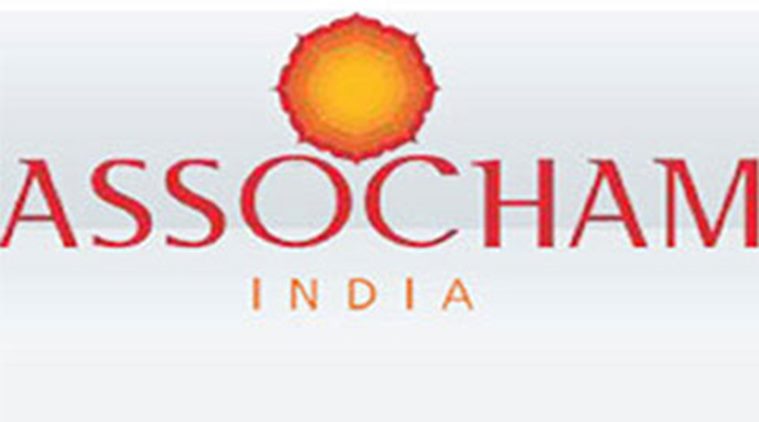SCREENING TEST FOR CHILDREN (AGES 11 to 18) FOR EARLY DETECTION & TREATMENT OF HYPERTENSION, CHOLESTEROL AND DIABETES, SAYS EXPERTS AT ASSOCHAM’S ‘ILLNESS TO WELLNESS’ SERIES
New Delhi : The Associated Chambers of Commerce and Industry of India (ASSOCHAM), one of the apex trade associations of India concluded the eighth edition of the ‘Illness to Wellness’ series themed ‘Prevention and Management of Hypertension’. The event saw an elite panel of leading cardiologists, hold an active dialogue on hypertension prevalence in India, its risks at the time of COVID-19, its early detection in children and best practices to lead a healthy life free from hypertension and cardiovascular diseases.
Supported by the hygiene brand SAVLON, the programme, an innovative and comprehensive approach to cascade awareness through wellness campaigns to address preventive healthcare management and to promote health, hygiene, and well-being of people, saw the renowned panelists firstly put forth the commonality of hypertension and how it is shows its presence even in children.
Reflecting on how hypertension is no longer a rich man’s disease but a steady silent killer, Padma Bhushan Dr. T.S. Kler, Chairperson, PSRI Heart Institute said, “Hypertension is currently one of the most common diseases in the world today. It was estimated in 2012 that there are 1.13 billion people with hypertension. In men, only 9.2% of the adult population have hypertension and in females it was 4.5%. So roughly, more than one fourth of the world population has hypertension. Two third of the patients of hypertension are in the lower middle-income countries. In fact, incidents of hypertension are less in advanced countries like USA. People say that it is a disease of the rich, but it is not so, rather it is the other way around. Also, almost 95% of hypertension cases are idiopathic hypertension meaning, we do not know the cause of it. Only 5% cases have some removable cause.”
Elaborating on how children too are prone to hypertension, Dr. Manjinder Sandhu, Director Cardiology & Artemis Cardiac Care said, “It is a big myth that children do not have hypertension, rather a significant number of children do have it. In fact, pediatricians these days routinely check blood pressure of children. When children or young adults have hypertension, we need to explore secondary causes. This is very important because earlier blood pressure of children would not be checked, and they would go undetected. By the time it was detected, it would have already created a lot of damage in the body due to the constant high pressure exerted.”
He also added that patients of hypertension are not necessarily more prone to contracting COVID-19 or developing severe symptoms but bear the same risks as a healthy person.
Adding to the discussion by focusing on how early detection can help prolong lives, Prof Dr. Raman Puri, Senior Interventional Cardiologist, Indraprastha Apollo Hospital and Chairman, Lipid Association of India said, “If parents have a history of premature coronary artery disease then the child comes at high risk of developing cardiovascular diseases. In such a case, cholesterol test should be done at least at the age of 11 or at least at 18. For children born with family history of high cholesterol, it can be done as early as 2 years of life. It may seem surprising, but it is the right age to detect. Detecting high cholesterol in the younger age group and bringing it down to a normal range will prolong their life. I request parents to screen their child’s blood sugar and lipid profile at least at ages 18 or 20. Preventable and treatable disorders like high cholesterol, diabetes and hypertension when detected early can make life comfortable and disease-free for these children.”
He further added that cardiovascular mortality in Europe and America has reduced by 50% while in India it has increased by 41%. Almost 40% of those approaching doctors with heart problems are less than 40 years of age and 20% of those dying of heart diseases are less than 40 of age highlighting the high prevalence of coronary artery disease in the country.
The expert panel unanimously agreed that those suffering from hypertension, diabetes and other cardiovascular diseases, can easily bring it under control through regular exercise, weight control and by learning better management of internal and external stress. Regular monitoring and continuation of prescribed medicines can keep these conditions from developing into high risk factors.
Mr Anil Rajput, Chairman, ASSOCHAM CSR Council, reiterating the prevalence of hypertension and the importance of raising awareness around it said, “It is estimated that over 1.3 billion people worldwide are affected by hypertension. If you do not have it under control, it can lead to several complications. The rise in cases over the decade has been worrisome. Thus, we can see the importance attached to having greater knowledge and awareness about this disease. The most common cause is often pointed to unhealthy diet such as excessive salt consumption, diet rich in trans fats and lower intake of fruits and vegetables. In poor countries, having a balanced and healthy diet becomes an extremely challenging task. Therefore, it is important for people to have ample awareness about the importance of having a healthy lifestyle.”
Dr. Rajesh Kesari, Founder and Director Total Care Control acted as the moderator of the event and raised pertinent questions before the panelists to guide the discussion into a strong knowledge-sharing, myth bursting and information heavy webinar. His smart manoeuvring of the discussions helped reap health foresights from the veteran cardiologists.

